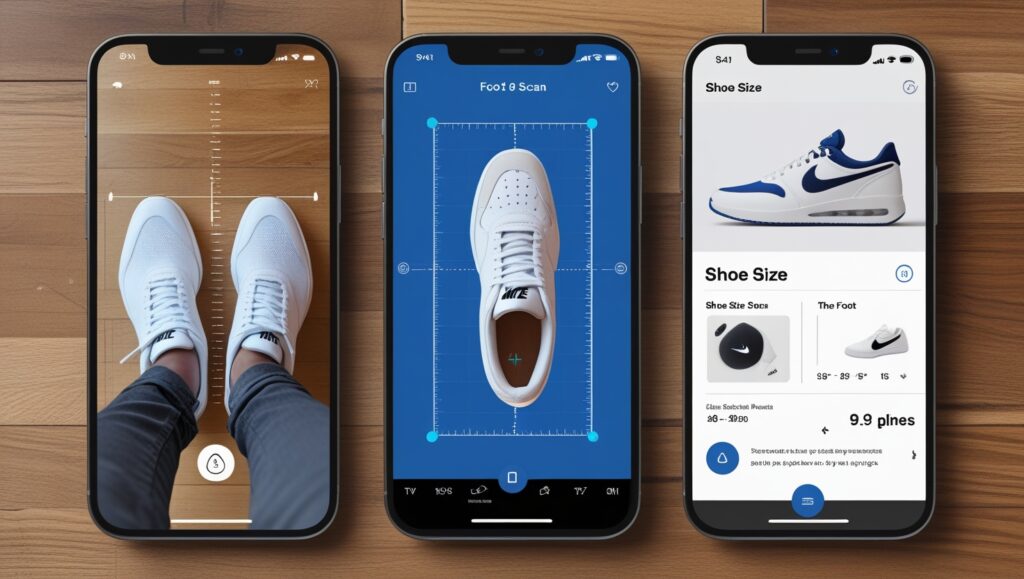click to get service View profile
AI and Data Analytics in Branding are transforming the way businesses connect with their audiences by delivering personalized experiences, improving decision-making, and predicting future trends. By using advanced technologies, brands can better understand customer behavior, create targeted marketing strategies, and build stronger relationships. As the digital world continues to evolve, AI and Data Analytics in Branding are becoming essential tools for companies aiming to stay competitive, innovative, and relevant in the market.
The Evolution of Branding in the Digital Age
From Traditional to Digital Branding
Traditional branding relied heavily on print media, television advertisements, and radio promotions. However, with the rise of the internet, the focus has shifted toward digital branding, where a strong online presence, active social media engagement, and strategic digital marketing campaigns are essential. This evolution has created new opportunities for AI and Data Analytics to transform the branding landscape, enabling businesses to make smarter decisions, deliver personalized experiences, and optimize their strategies for greater impact.
The Role of Technology in Modern Branding
Technology has empowered brands to build deeper, more meaningful connections with their audiences. Through AI and Data Analytics, businesses gain valuable insights into consumer behavior, preferences, and emerging trends, allowing them to craft highly targeted strategies for maximum impact. The integration of AI and Data Analytics into branding has made it possible to deliver more personalized, efficient, and results-driven campaigns that strengthen brand loyalty and drive long-term growth.
How AI is Revolutionizing Branding

Personalized Marketing Campaigns
AI and Data Analytics empower brands to design highly personalized marketing campaigns by analyzing consumer data and uncovering patterns in behavior. This advanced approach enables brands to deliver targeted messages that resonate with individual customers, ultimately boosting engagement and conversion rates. By leveraging businesses can evaluate browsing history, purchase activity, and social media interactions to recommend products or services specifically tailored to each user’s interests and needs.
Enhanced Customer Experience
AI and data analytics are revolutionizing customer support with advanced chatbots and virtual assistants that provide instant and reliable service. These intelligent tools efficiently handle inquiries, offer personalized recommendations, and resolve issues in real time, enhancing the overall customer experience. By leveraging this technology, brands can streamline interactions, increase satisfaction, and foster stronger customer relationships.
Predictive Analytics for Branding
Predictive analytics powered by AI and data analytics allows brands to forecast future trends by analyzing historical data. This technology helps businesses anticipate market shifts, evolving consumer preferences, and emerging industry trends, giving them a competitive edge. By leveraging AI-driven insights, brands can refine their marketing strategies, ensuring campaigns are both relevant and strategically timed to maximize impact and engagement.
The Impact of Data Analytics on Branding
Data-Driven Decision Making
AI and data analytics empower brands to make smarter, data-driven decisions based on real insights rather than guesswork. By analyzing key metrics like website traffic, social media engagement, and sales performance, businesses can identify successful strategies and areas for improvement. With this approach, brands can develop more effective marketing strategies and allocate resources efficiently, driving long-term growth and stronger results.
Understanding Consumer Behavior
AI and data analytics provide brands with deep insights into consumer behavior, enabling them to better understand their target audience. By examining data from multiple sources such as social media, online reviews, and customer feedback, brands can gain a complete picture of their customers’ needs, preferences, and pain points. Leveraging AI and Data Analytics, businesses can craft more relevant messaging and develop products or services that truly meet customer expectations, resulting in stronger engagement and brand loyalty.
Optimizing Marketing Campaigns
With AI and data analytics, brands can monitor the performance of their marketing campaigns in real-time, gaining instant insights into what’s working and what needs adjustment. This data-driven approach allows businesses to continuously refine their strategies, ensuring every campaign is optimized for maximum impact. By leveraging AI and Data Analytics, brands can boost their return on investment (ROI), improve overall results, and make smarter decisions to drive long-term success.
Case Studies: AI and Data Analytics in Action
Nike: Personalization through AI

Nike has successfully harnessed the power of AI and Data Analytics to deliver highly personalized experiences for its customers. Through its mobile app, Nike analyzes user behavior and preferences to provide tailored product recommendations, customized workout plans, and exclusive offers. This advanced level of personalization has helped the brand strengthen customer relationships, enhance user engagement, and significantly boost sales.
Starbucks: Predictive Analytics for Growth

Starbucks effectively uses AI and Data Analytics to optimize its operations and elevate the customer experience. By analyzing data from its loyalty program, mobile app, and sales transactions, Starbucks can predict customer preferences, manage inventory more efficiently, and create highly targeted marketing campaigns. This data-driven strategy has played a key role in driving Starbucks’ continued growth, customer satisfaction, and long-term success.
Implementing AI and Data Analytics in Your Branding Strategy

Identifying Key Objectives
Before integrating AI and Data Analytics, brands must first define their core objectives. Whether the goal is to enhance customer experience, boost engagement, or increase sales, having a clear strategy in place is essential. Setting specific goals helps guide the successful implementation of these technologies, ensuring that every effort aligns with business priorities and delivers measurable results.
Collecting and Analyzing Data
To successfully leverage AI and Data Analytics, brands must collect data from multiple sources, such as websites, social media platforms, and direct customer interactions. After gathering this data, advanced analysis helps uncover valuable patterns, trends, and insights. These findings enable brands to create more informed, targeted, and effective branding strategies that resonate with their audience and drive better results.
Integrating AI Tools
Today, there are countless AI and Data Analytics tools available to help brands strengthen their branding strategies. From advanced chatbots and virtual assistants to powerful predictive analytics platforms, these technologies allow businesses to streamline operations and deliver personalized experiences. By selecting and integrating the AI and Data Analytics tools that align with their specific goals, brands can maximize efficiency, improve customer engagement, and drive meaningful growth.
Continuous Optimization
The successful use of AI and Data Analytics is not a one-time effort but an ongoing process. Brands must regularly monitor and assess their strategies, using real-time insights from AI and Data Analytics to make informed adjustments as customer behavior and market conditions evolve. This continuous, data-driven approach ensures that branding efforts stay relevant, competitive, and highly effective over time.
Benefits of AI and Data Analytics in Branding

Increased Personalization
AI and Data Analytics empower brands to deliver highly personalized experiences that truly connect with individual consumers. By understanding customer preferences and behaviors, AI and Data Analytics help create tailored interactions that boost engagement and increase conversion rates. This advanced level of personalization not only enhances customer satisfaction but also drives sustainable business growth.
Improved Efficiency
By automating repetitive tasks and providing instant customer support, AI improves operational efficiency. This allows brands to focus on strategic initiatives and deliver better customer experiences.
Enhanced Decision Making
Data analytics provides brands with valuable insights that inform decision-making. This data-driven approach leads to more effective strategies and better outcomes.
Competitive Advantage
Brands that harness the power of AI and Data Analytics gain a significant competitive advantage by staying ahead of market trends and consistently delivering exceptional customer experiences. With insights driven by AI and Data Analytics, businesses can make smarter decisions, build stronger customer relationships, and foster brand loyalty—ultimately leading to increased market share and long-term success.
Challenges and Considerations
Data Privacy and Security
As the use of AI and Data Analytics continues to grow, brands must prioritize data privacy and security. Protecting customer information and using it ethically is essential to maintaining trust and ensuring compliance with data protection regulations. By implementing strong privacy practices alongside AI and Data Analytics, brands can safeguard their reputation while delivering personalized experiences responsibly.
Integration Complexity
Integrating AI and Data Analytics into existing systems can be a complex process that often requires careful planning and significant investment. To achieve seamless integration and maximize the benefits of AI and Data Analytics, brands must develop a clear strategy, allocate the right resources, and ensure their teams are properly trained. A well-executed implementation helps businesses unlock the full potential of their data while driving smarter, more effective branding efforts.
Keeping Up with Technology
With technology evolving at a rapid pace, brands must stay informed about the latest innovations in AI and Data Analytics. Continuous learning and adaptation are crucial to remain competitive in the ever-changing branding landscape. By keeping up with advancements in AI and Data Analytics, brands can refine their strategies, embrace new opportunities, and maintain a strong market presence.
Conclusion for AI and Data Analytics in Branding
The integration of AI and Data Analytics is revolutionizing the future of branding. By leveraging these advanced technologies, brands can craft highly personalized and impactful campaigns that truly connect with their audiences. As the digital landscape continues to evolve, the role of AI and Data Analytics in branding will only grow stronger, unlocking new opportunities for innovation, growth, and long-term success.
For more insights into how AI is transforming business strategies, check out our blog on AI in Business. And to discover how our agency can elevate your brand using AI and Data Analytics, visit Leo9 Studio.
To dive deeper into the influence of AI on branding, we also recommend reading our comprehensive guide on AI’s Role in Marketing.
FAQs for AI and Data Analytics in Branding
How can AI improve branding strategies?
AI and Data Analytics can significantly enhance branding strategies by delivering personalized customer experiences, improving customer support through intelligent automation, and using predictive insights to forecast trends and optimize marketing campaigns. By leveraging AI and Data Analytics, brands can create more targeted, effective, and future-ready branding strategies that drive stronger engagement and better business outcomes.
What are some examples of AI tools used in branding?
Examples of AI and Data Analytics tools used in branding include chatbots, virtual assistants, predictive analytics platforms, and AI-powered personalization engines. These tools help brands automate customer interactions, predict future trends, and deliver customized experiences, making AI and Data Analytics essential for modern, effective branding strategies.
How does data analytics enhance branding efforts? Data analytics enhances branding efforts by providing insights into consumer behavior, enabling data-driven decision-making, and optimizing marketing campaigns for better performance.
What are the challenges of integrating AI into branding?
Challenges of integrating AI into branding include data privacy concerns, integration complexity, and the need to stay updated with rapid technological advancements.
Why is personalization important in branding?
Personalization is important in branding because it creates tailored experiences that resonate with individual consumers, leading to higher engagement and conversion rates.
How can businesses start using AI and data analytics for branding?
Businesses can begin leveraging AI and Data Analytics for branding by first identifying clear objectives, such as improving customer experience or increasing engagement. Next, they should focus on collecting and analyzing valuable data from various sources to uncover insights. By integrating the right AI and Data Analytics tools into their workflow and continuously refining their strategies based on real-time data, brands can maximize their impact and stay competitive in the market

